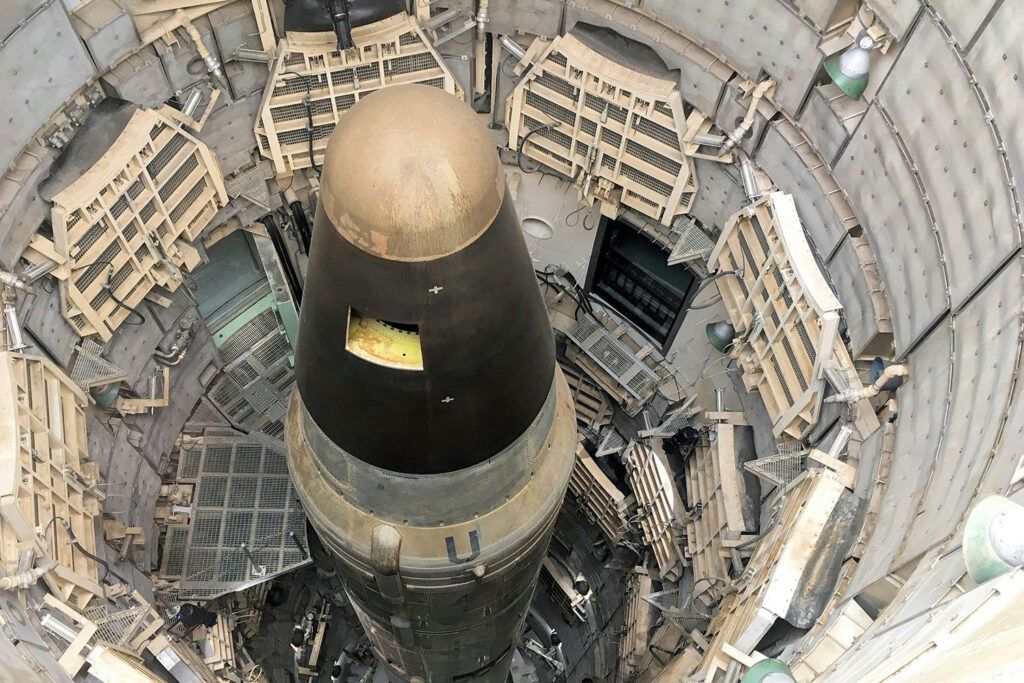Putin isn’t bluffing about using nuclear weapons in Ukraine
Globe and Mail
Russian President Vladimir Putin is forcing the West to play a dangerous game of chicken, and he’s about to throw his steering wheel out the window.
We all know the basic storyline. Two drivers race their cars toward each other on a straight road, risking a head-on crash. If one driver swerves to the side, the other one wins the game. If both swerve, neither wins or loses, but both probably survive. If neither driver swerves, both die.
In his 1965 book On Escalation, the great nuclear war theorist Herman Kahn explained how one can sharply raise the probability of winning this game. “The ‘skillful’ player,” he wrote, “may get into the car quite drunk, throwing whisky bottles out the window to make it clear to everybody just how drunk he is. He wears very dark glasses so that it is obvious that he cannot see much, if anything. As soon as the car reaches high speed, he takes the steering wheel and throws it out the window.”
Being drunk, wearing dark glasses and defenestrating the steering wheel all communicate an irrevocable commitment to speeding straight ahead. The other driver faces the stark choice: letting their opponent win or death.
Mr. Putin is carefully constructing a global message that conveys this kind of irrevocable commitment. He’s ordered referendums in the Russian-occupied regions of eastern Ukraine to legitimize annexing them into the Russian Federation. Once annexation has taken place, any Ukrainian attack on these regions can be construed as an attack on Russia itself.
In his speech to the Russian people last week, Mr. Putin established that such an attack will be met with a nuclear response. “In the event of a threat to the territorial integrity of our country and to defend Russia and our people,” he declared, “we will certainly make use of all weapon systems available to us. This is not a bluff.”
Following territorial annexation, the risk of escalation to nuclear war will likely rise in two distinct pulses. The first will occur in the immediate days (even hours) after annexation. Ukraine will call Russia’s bluff by using U.S.-made HIMARS rocket artillery to strike Russian targets deep inside the occupied territories.
Given his inflammatory rhetoric so far, Mr. Putin will be obliged to respond with some significant gesture. He might, for instance, order tactical nuclear warheads to be mated to Iskander mobile missiles and moved into the war’s theatre. This act would be akin to throwing the steering wheel out the window, because he’d be publicly committing Russia to using the weapons should Ukrainian attacks continue.
Yet it seems unlikely that further HIMARS strikes alone would push him across that threshold, as long as Russian forces more-or-less hold the line in Ukraine. The second pulse of nuclear risk – and the moment of greatest danger – will come the next time Ukrainians break through Russian defences and retake swaths of occupied territory. Given the way Mr. Putin is intentionally locking himself into escalation, the chances he’ll cross the nuclear firebreak at that point are high.
Yet despite the danger, the West mustn’t abandon the Ukrainians to Mr. Putin’s Russia. Even letting the invaders keep only the territory they’ve seized so far would be both a moral abomination and a geopolitical error of monumental proportions. The militarily weakened but politically emboldened regime would rebound as an even more potent threat to the world’s remaining liberal democracies, spreading toxic disinformation and inspiring populist authoritarians the world over.
But those of us who support Ukraine’s struggle must acknowledge that the military path forward has become incredibly treacherous. Once annexation occurs, the Ukrainians must avoid surging forward into occupied territory, even if Russian defences collapse. Instead, they should nibble at the territory’s edges, achieving a steady stream of smaller, incremental victories, reclaiming a village here, cutting a supply line there, and surrounding and capturing pockets of Russian troops.
Tens of thousands of green Russian soldiers will still be sent to the front to be grievously wounded or die, while the Ukrainian insurgency in the occupied territories will continue to assassinate occupation officials and attack military installations. Over time, with a bit of luck, persistent, internal opposition in Russia will rise, Mr. Putin’s political power will wane and an opportunity for a negotiated settlement that satisfies most (but likely not all) of Ukraine’s goals will emerge.
For that to be possible, we need to try to change the nature of the game. The first step is to stop racing toward Mr. Putin’s military machine at full speed, and instead try to shoot out its wheels, so it grinds to a halt well short of a nuclear collision.

Topics
Conflict
Societal Collapse
Specific Countries or Regions
